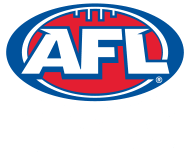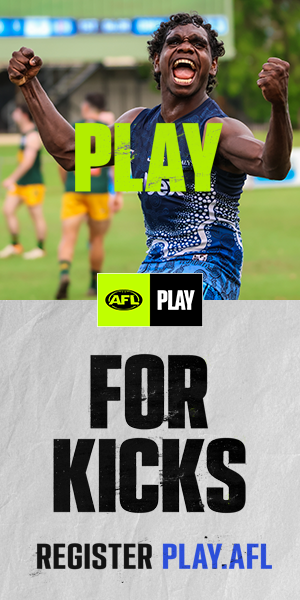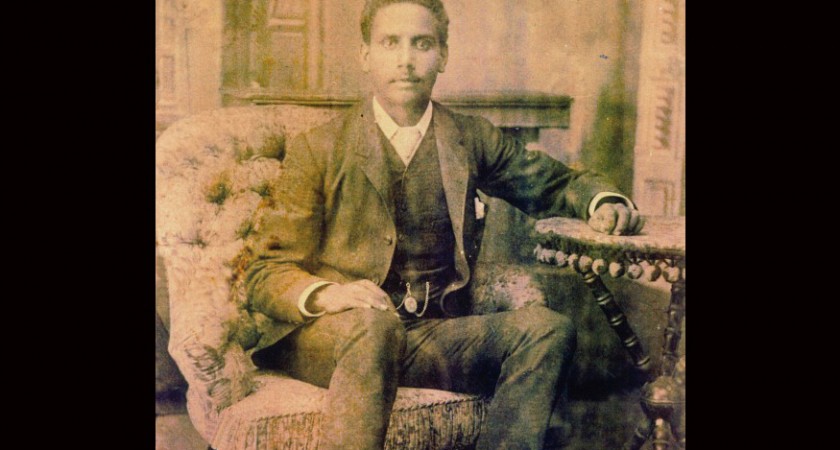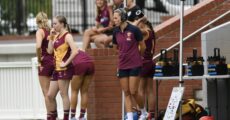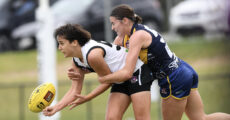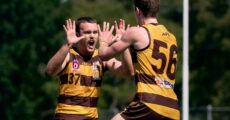Before commencing a highly decorated rugby career in 1891, an outstanding Indigenous athlete with an amazing story emerged from the Maryborough representative Australian football team of 1889. Maryborough’s Frank Ivory, along with Jack Hensler (1884 − Gympie), were the only two players from regional areas to represent Queensland for the next 80 years.
Brisbane-based league officials were biased to the metropolitan players when it came to representative selection; in spite of Ipswich’s dominance from the mid-1880s onwards they were always under-represented when it came time to pick a “Queensland” team. This bias makes Ivory’s selection in Queensland teams even more remarkable. His prodigious talent and race made him stand out from all other footballers in both Australian football and rugby.
Frank Ivory Profile
Frank Ivory was regularly mentioned as an exciting and consistent performer for the Victorias Australian Football Club in Maryborough during 1888 and 1889. His efforts in 1888 were as a 17-year-old schoolboy who was attending Maryborough Grammar.
When the Maryborough representative team travelled to Ipswich in 1889, Ivory received his first exposure outside of his hometown.
After a best on ground performance one Ipswich journalist noted: “ . . . among those worthy of mention was Frank Ivory, who really played a magnificent game, his fine running, good kicking, and general all-round play eliciting rounds of applause from the spectators”. At the after-match function leading administrator Alfred Stephenson “ . . . alluded to the splendid play of Frank Ivory, and said that, in his opinion, he was the best all-round player in Queensland”. Former colonial representative player Sam Harrison umpired the match and he also “ . . . spoke of the good all round play of Ivory”.
Frank Ivory was the son of Francis Ivory, a wealthy Scottish landholder from Eidsvold (170 miles west of Maryborough). Ivory Snr was the Burnett representative in the Queensland Parliament for several years (Ivory Street in the Brisbane CBD is named in his honour). Francis Ivory and his brother Alexander were credited with bringing the game of golf to Queensland.
Frank Ivory’s Scottish grandfather was Lord James Ivory (1792−1866), who served as Scotland’s Solicitor-General and also spent time on the High Court.
Frank Ivory’s Aboriginal mother, Caroline Govenji, was a member of the Gurong Gurong and Wakka Wakka tribes in the South Burnett. Caroline had three children to Francis Ivory when she worked at the Eidsvold Station. She allegedly left her work at the station and returned to her tribe when Ivory Snr insisted that their children attend school in Maryborough.
After being introduced to Australian football at the Maryborough Grammar School in the mid-1880s, Frank Ivory had, by 1893, established himself as one of the best footballers of any code in Queensland. His fame and achievements were to grow over the ensuing years.
Ivory was selected to represent the QFA in 1889 and 1890, and a few years later he also represented Queensland at rugby. Frank Ivory went on to attain legendary status within the football communities of Rockhampton, Maryborough and Mt Morgan, captaining several clubs and regional representative teams.
Racism severely limited the opportunities for Indigenous sportsmen for most of the twentieth century. In the nineteenth century club representation was virtually impossible, let alone the possibility of representing your colony. Prior to 1910 there were numerous legal restrictions on Aboriginal people, and Ivory was further constrained by his location 160 miles north of the capital city. Ipswich footballers − located twenty miles west of Brisbane − were already well aware of the barriers to selection for those based outside of the colony’s capital. Ivory’s achievements are even more noteworthy when cast in the light of some of the prevailing racism of the era.
Ivory Snr’s position as a parliamentarian, and his ability to provide his son with an education at Maryborough Grammar, certainly gave young Ivory many more opportunities than other Aboriginal youth. Still, Frank Ivory’s ability to achieve in a white man’s world was astounding.
Some thirty years after achieving his sporting fame, after returning to Maryborough in 1922 for a civic reception, the Maryborough Chronicle reported that Ivory’s name was a “household word” in the 1890s. The report went on to acknowledge that “ . . . his noteworthy deeds in practically all branches of sport” led to his status as a “veritable hero”.
Ivory’s “great turn of speed and . . . football brain” were also lauded. They had “never seen a better player”, and he was one of the “greatest footballers Queensland had ever seen”. His “splendid physique” and “great record on and off the field” were also noted, as was the fact that most of the rugby and Australian football clubs in Brisbane would seek his services.
Ivory was a humble man, and an “ideal sportsman” who was unperturbed by his fame. He was considered to always be “eminently fair”. Fifty years after his playing peak, in 1941, he was still remembered fondly in Central Queensland. Football pundits noted his exploits as a “popular captain” and representative rugby and Australian rules footballer.
By Murray Bird*
*This piece is an excerpt from a soon to be released book by the Queensland Australian Football Forensics Group (QAFF), a volunteer group of researchers and writers.
The book which will contain in excess of 800 pages, and cover major and minor Queensland leagues and associations in both city and regional areas over a 150-year period.
For more on QAFF, head to http://www.qldfooty.com/
